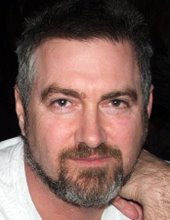The rule: No man should be without delusions since they appear necessary to our happiness as realities.
Humanity’s struggle is invisible. A greater number of people believe in a magic universe. Man is unable to make
fundamental corrections. The masses continue to believe that anything is
possible. It allows them to defer to authority and opt for idealized
solutions. Delusion and ignorance are inextricable, the former insuring the
latter, both incompatible with integrity and effective human function. Myth and
fantasy span the spectrum across religious, political, economic, social, and scientific
fields. When we begin to recognize the fundamental nature of beliefs, maybe the unfounded ideas and rules will become aware of nature's principles that are
being ignored and violated.
One insidious aspect of a cultural myth is
that, once accepted, there is a desperate, inborn drive to protect and maintain
them. They cause people to avoid and reject the very information necessary for
insight, resulting in abysmal ignorance in the area of the belief. A fantasy is
a thought about a scenario an individual knows is untrue, at least on a
deeper level, but likes the personal gratification it brings.Within our own society, a large percentage of the population
realizes that most of our cherished ideas and premises are untrue, but support
them, never the less. The acceptance of our cultural fantasies range from
grudged and marginal tolerance to blind, fanatic and evangelistic faith. For a large segment of the world's human population,
cultural myths and fantasies constitute psychosis, a predominant immersion in
belief, where reality is denied and the ability to distinguish the real from
the fantasy is lost. Systems are so corrupt that one is required to lie in order to live within
them, blunting individual integrity and seriously compromising the ability of
systems to even be useful. Governmental coercion results in our obeying laws that
are counter to human effectiveness and forces our complicity in the
dissemination of propaganda and in the perpetuation of diverse disorder.
In every society, there are cultural imperatives to lie.
You are strongly pressured to accept and believe false information. You are
strongly dissuaded from questioning the beliefs of others or the system.You are pressured to lie to your children, to the
authorities, to your associates and, worst of all, to yourself. You are lied to by your parents, your peers, your
authorities, your institutions and, of course, the media. You are constantly
bombarded and live your life immersed in lies. It is a testament to man that living in a quagmire, he still has the capacity to see the realities which lie all but
hidden among the weeds of cultural delusion.
An unspoken code mandates that you support
the delusions of others, at least to the degree that you do not pose a serious
threat to them. Supporting one another's delusions is socially
gracious or considerate.You are discouraged from talking about anything that will
illuminate a flaw in another's belief. Punishment of your transgression is swift from the person whose cherished belief is threatened and whom you gain their attention.
People believe that society's fantasies are
harmless, if not actually helpful. Such thinking creates a safe haven for many
seemingly innocuous myths and fantasy systems, lessening the pressure to
discard them. Many of our most cherished fantasies have not only
wide-spread acceptance on this basis but attract a large percentage of the
population as active supporters. Popular support tends to discourage open questioning
and criticism of delusional material and the production of factual material to
the contrary. Few buck the rushing and angry waters of popular opinion,
especially when it is whipped to a maelstrom by unseen but powerful and
virulent forces within the a society.
The powerful come to
the conclusion that mankind should be allowed to live in an unstated context of
conventional thought that obscures or avoids acknowledging one’s true world,
one's relations in the world, and one's choices. The choice of self-deception
allows one to avoid the truth of oneself to the world as it would lead to
feelings of dread, guilt and anxiety. Without any delusion, man becomes depressed. It is a catch 22 where the depressed ones may give the clearest
observation to fairness but since life is not fair, seeking fairness may ultimately end in depression.
